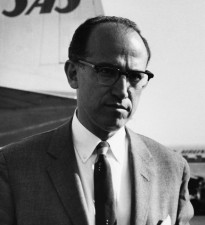 Polio has been out of Africa for over one full year now as there has yet to be a diagnosed case in the continent since July 24, 2014. This should sound like a cause for celebration as it should signify a major milestone in the fight to eradicate the disease, however, many are still worried about the state of the eradication effort both in Africa and globally.
Polio has been out of Africa for over one full year now as there has yet to be a diagnosed case in the continent since July 24, 2014. This should sound like a cause for celebration as it should signify a major milestone in the fight to eradicate the disease, however, many are still worried about the state of the eradication effort both in Africa and globally.
Efforts to eradicate other infectious diseases in Africa have had a tough go at it. Many people live in isolated villages or live nomadic lifestyles which makes monitoring vaccination rates and identifying new cases difficult. Africa was the last place for eradication in both Smallpox and rinderpest. However this may not be the case this time. Both Afghanistan, with 4, and Pakistan, with 28, still have low numbers of the new polio infections in 2015. The WHO will not officially declare the continent eradicated of polio until there have been three years with no new cases.
One reasons for worry is that the Conference of Catholic Bishops in Kenya recently announced their objection to the vaccine. The claim is not a new one, although when this was posited in Nigeria a decade ago, it came from Shariah-law islamists: estrogen in the vaccines is a Western Plot to sterilize all of Africa. The bishops are requesting a moratorium on the vaccine effort until they can be tested.
The Kenyan government responding in support of the vaccination efforts, saying: Any attempts aimed at mobilizing the public against taking their children for vaccination is a serious violation of the right of children to health and survival. The ministry of health once again reassures the public of the safety of all vaccines used in Kenya. I therefore appeal to all stakeholders, especially the leadership of the Catholic Church, to continue supporting the immunization campaign.
Distrust of the west has often been a problem in the eradication and vaccination efforts in Africa. In 2014, these same Catholic Bishops joined forces with the Kenyan Catholic Doctor s Association to campaign against the tetanus vaccine for fears it contained estrogen.
Despite these obstacles, many in the science community believe that full global eradication is now in sight. Elias Durry, leader of the WHO s eradication effort in Pakistan responded to the news by challenging his team there, he said This puts a lot of pressure on Pakistan to do better


